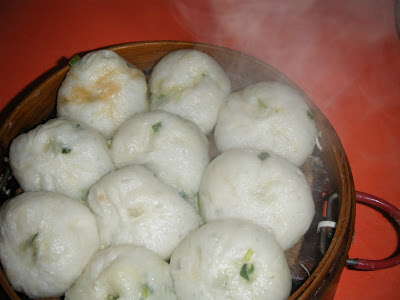Traveling across Beijing at night -by public transit- can be a challenge, but is always an adventure.
This is true not only for someone who spent their entire life in small towns where public transit was essentially nonexistent, but it is an equal mystery for people who were raised right here in the city, perhaps some blocks down the street.
 bicycle by day, taxi by twilight
bicycle by day, taxi by twilight
Bicycles are locked up and the subway shuts down, as it must, when the foot traffic slows. Particularly in China, when night time falls, so do the lights dim, the eyelids droop in waning lackadaisical enthusiasm. This is not entirely true, but most locals would agree.
The foreign community and younger Generation X, on the contrary, may even perk up once the sun hints at setting, and the most experienced of taxi cab drivers swear by the night shift.
taxi masterIndeed, the cabbie of China is referred to as 'Master' (师父), and with full justification granted.
The drivers know that anyone still wearing tread on the soles of their shoes after 11p is entirely dependent on them for any distance over 2 blocks traveled. Business is business!
stranded in the cityWhile Beijing is rather neatly composed of concentric asphalt 'ring' roads (somehow, the 10+ lane highways are still referred to as 'roads', perhaps because a road is more lovely than a highway?) , the blocks themselves are rather imposing.
To find the next major intersection may require the downing of an energy drink or a changing of the socks. At nighttime, this may not be what the typical pedestrian had in mind.
It isn't for lack of safety that pedestrians hail the next taxi upon setting foot to curb. It may, though, be for lack of familiarity (did I mention, it can be rather intimidating finding your bearings in a concrete, let alone foreign, city? At night? Without stars to point the way? And with a limited vocabulary, should you get lost?) Some might say that 'outsiders' know Beijing like the back of their foot, which is to say, not very well.
Furthermore, the popular and often visited evening venues of Beijing are not necessarily located in adjacent districts. The main University District is brimming with quick minds and thirsty palates, and the night is ever young in Beijing, where many bars double as cafés and smoothly switch from Dos Equis to Espresso while the sun is not yet risen.
But then there are those who are simply out with friends, and the night gets away from them. Or rather, the day sneaks away and leaves all with nothing other than darkness to share. Dinner primes the palate for a fermented beverage, which might be followed or paired with a duel at the billiards hall or a jiving at a local music joint. It may be with purpose, but it is often without intent that the night is suddenly upon them, and the clock is too soon to strike midnight.
trains, no more
There are perhaps no sadder words exchanged between the transit operator's voice over the loudspeaker and the hopeful, but now helpless, passengers. After paying the ¥2 fare, flock after flock of Nightowls are left to climb or descend the stairs once again, back to the level of the street.
And the Master Cabbie is awaiting their return to the curb:
 WuDaoKou subway station is popular... when it's running
WuDaoKou subway station is popular... when it's running
I could almost swear that on one of those evenings, I saw one girl limping up those subway station stairs carrying a single glass slipper.
Being as I've recently moved from the University district to a [local] residential area, I too have learned the hard way that the Subway waits for No One. And it is just as well.
 will the doors be open?
will the doors be open?The first time I misjudged the last train to pass through the connecting station, I saw no other alternative than to hail the Master as if obeying a greater order of the urban universe. Having already paid my subway fare of ¥2, the master greeted me at the curbside with his blinker, and I... bid farewell to another ¥23.
It was a fare well spent, however, with not a yuan lost to regret. Aside from the plush seats and door-to-door service, I shared a great conversation with the Master. A private conversation with the common local makes for an enjoyable commute.
He, a native of Beijing, preferred the night shift... because he understood that the night wanderers swarm to the red 'for hire' light of a taxi as do insects to the electric blue killer lamps. Business is rockin', or 'red' as the locals say. He was just 3 years older than I, which we figured out because I am a snake and he is a tiger. -So says the the corresponding zodiac of the Chinese lunar calendar.
A short ride of 15 minutes, coupled with inquisitive conversation, and I was home sooner than the subway could have delivered my commuting tail. And back in my humble abode before the clock struck midnight, to boot!
 still in Beijing!
still in Beijing!
A couple weeks later, however, daylight once again teased with the lengthening of the spring day, giving the night ample time to sneak up on me, before I could make the necessary one of two subway transfers.
However, on this evening, it was unclear as to whether there was another train yet to come. Or whether the lights had accidentally been left on to tease where indeed no train would arrive.
I stood pondering aloud (in Mandarin) with the others who hovered in angst, and reasoned aloud that the possibility of the last train coming to save us... was slim. It was the end of hopeful naiveté at best, and we slowly took to the stairs with what little pride we had left.
It is in this fine moment of desperation, when the mind is struggling to cope with extreme disappointment and is toying with regret over timely responsibility, that the bond between fellow passengers can be stronger than any social anthropologist could pry from the grips of any algorithm:
The man who had, in fact, beat me to the unforgiving doors of the transfer station turned to me and asked where I was headed. East and slightly north, near Subway Line 5, I say. He suggested we carpool, dare we fall only half the victim that each of us was destined to the taxi Master.
How could I turn down an offer like that?
As I learned on the walk up and out of the station, he was newly back to Beijing after 5 years studying abroad in Germany. He had guessed that I was Russian or German, but had not expected my Mandarin to be at [whatever] level that it is. And so, we talked our way out to the street side and hailed the next Master to deliver first me, and then him.
Before parting, I contributed a ¥20 towards the fare total, as he was still not yet halfway to his destination, and he left his email with promise of a coffee (only a Chinese living in Germany for 5 years would promise such a toast.) It seems the next time we meet, the night will have receded and the day will brim with promise of a brew.
And so, I discovered once again, by way of this humble reminder, that the world is small. That people want to be and
are friendly. That cities are social by nature. That strangers can meet. That the Masters do not win every time.
third time, the charmInterestingly, there is something undeniably mystic about the
number 3, which has been a subject of science fiction and superstition alike for millennia.
And tonight's journey homeward proved to be no exception. It was indeed the third time [tardy] that showed me the Way of Three.
Paying careful attention to exit the subway station at it's southeast exit, I knew I would be rightly positioned to take a taxi in the direction of my apartment (east) without stumbling across an intersection, taking a sky bridge, or having to direct the master through a U-turn (all the while, with hairs raised in fear of being led down a more 'scenic' route.)
Deciding not to fight the rest of the flock for the next taxi, I walked eastwards to where the crowd no longer ventured.
And there It was.
It was as if fate itself had led me to no other place than... the bus stop. How obvious! Could it be possible that there a bus would pass by my apartment and save me from the squeeze of the Master's fare?
After studying the bus stop charts for 3 different buses, desperately searching for something resembling anything close to the one of four characters in my street name, a bus #689 pulled up. And there, lit up above the door was the bus' sign with two of these very characters! It could no more have called me out by name!
Barely believing my luck, I rushed aboard to verify with the driver whether it could maybe, just possibly, be truly headed where I was hoping to head. A nod of his head and a swipe of my transit card later, I found a seat - but not before counting the number of stops until I could walk the last 10 minutes to my address. Home, sweet home.
At ¥0.40 (as opposed to ¥23), I did not even attempt to restrain the twinge of pride that crept over me in the course of that minute.
I think next time I miss my last trusty subway train, I might hitch-hike door-to-door.


























